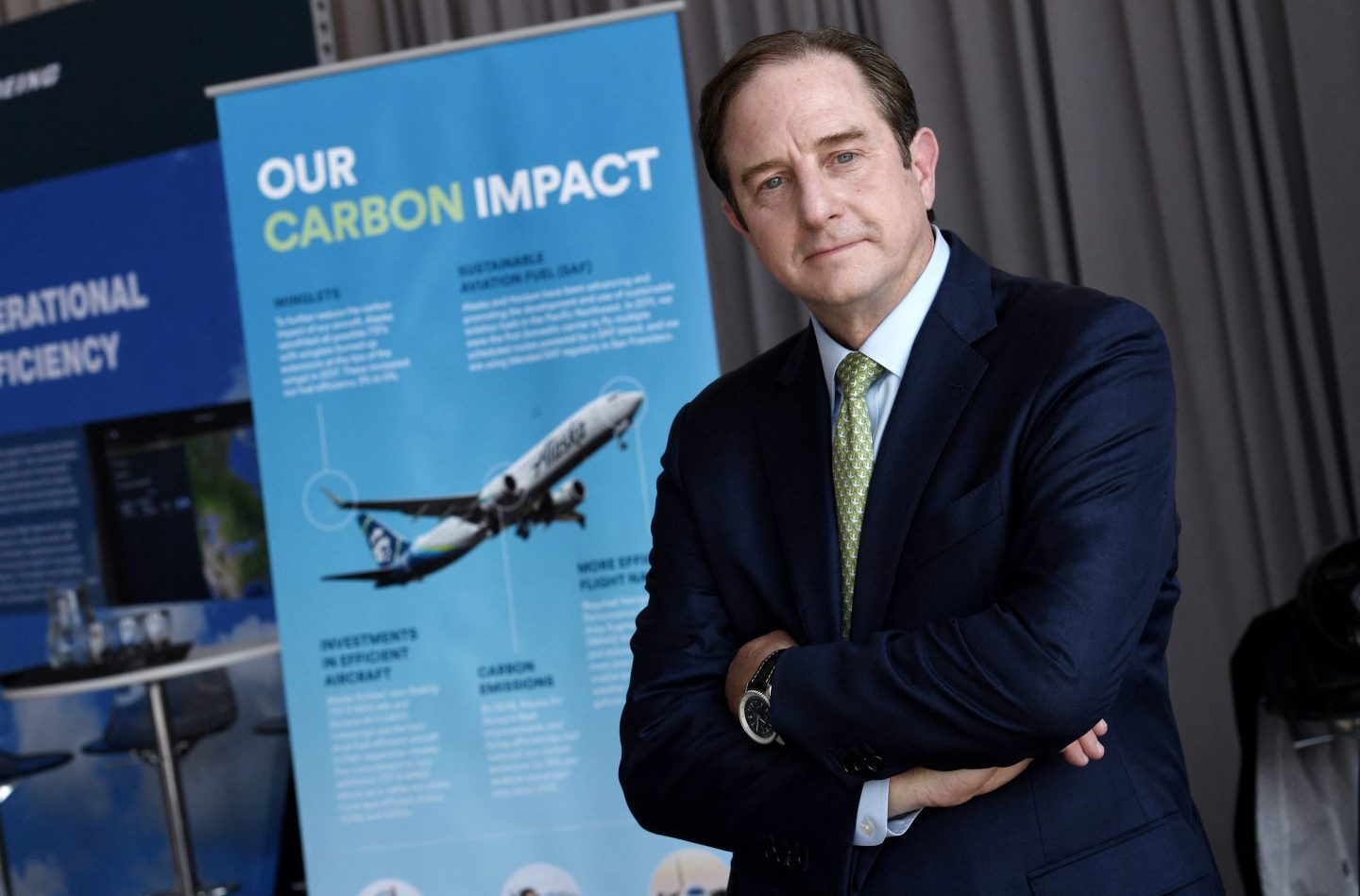Good morning from Geneva.
Can aviation ever become sustainable?
Over the past few years, Boeing has had to answer this question at the same time as it tries to regain customers’ trust following the deadly crashes of two 737 MAX planes, which together killed 346 people.
That means Chris Raymond, the company’s first-ever chief sustainability officer, has to keep an eye on safety as he deals with the sustainability question, he told me yesterday over the phone.
“You can’t have sustainable aerospace unless you have safe aerospace. Any solution that actually scales up, first, has to be technically possible,” he said.
It’s one reason why he believes that, if the aviation sector really is to reach its goal of hitting net-zero by 2050, so-called sustainable aviation fuels (SAFs) will be a major part of the solution.
“If the objective is to radically reduce carbon emissions by 2050, there will be a lot of airplanes–60% to 70%–looking a lot like the ones we fly today,” Raymond said. (Planes don’t require significant re-engineering to switch from jet fuel to SAFs, which emit much less CO2).
Electric planes can only carry the “lower end” of passenger volume, Raymond said, as the size and weight of current batteries make larger planes unfeasible. He also doesn’t see hydrogen-fueled planes as being the solution. “There won’t be a lot,” according to the Boeing CSO, due to incompatible infrastructure, design challenges, and the lack of abundant, cheap, and green hydrogen.
On hearing these sober predictions, I wondered whether Boeing and other incumbents weren’t like car manufacturers before the arrival of Elon Musk’s Tesla: lacking both an outside-the-box vision and stratospheric levels of ambition.
Raymond assured me that wasn’t the case.
“You have to advocate for 2050 targets. You also have to look for Elon Musk engineers who explore different ways that are not technically possible yet. And that’s what we’re trying to do,” he explained.
Raymond acknowledged that sustainability is always part of the conversation with the new generation of talent, with no room for sophistry.
“[They] are educated on sustainability, whatever their discipline is. They’re more aware, and a lot of them are minoring in environmental science, and they are going to work for a values-based, purpose-driven company,” he said. “They sniff out” if you’re not serious.
Separately, read the latest piece from my colleague Jessica Mathews, which explores “what has quietly become one of the surest paths to an enviable job in Silicon Valley.” The Stanford Review, a student newspaper founded by Peter Thiel, has become a talent factory for his and other Silicon Valley companies.
More news below.
Peter Vanham
peter.vanham@fortune.com
@petervanham
TOP NEWS
Is Nvidia overvalued?
Investors piling into chipmaker Nvidia after its stellar earnings report Wednesday could be disappointed, as its lofty valuation would require an unprecedented run of profits to be justified. An analysis from Fortune’s Shawn Tully suggests that Nvidia would need to make $104 billion of annual profits within seven years–more than Apple today. For the time being, analysts see a bright future for Nvidia thanks to the A.I. boom, with one calling it “the most important company to civilization” over the next decade. Fortune
One euro
Beer maker Heineken has agreed to sell its Russia business for the symbolic sum of one euro ($1.10), finally leaving the country after pledging to do so soon after Moscow’s invasion of Ukraine last year. The beer giant will write off $323 million as part of its exit. Russia is now seizing the local operations of companies based in “unfriendly” states, like those of French firm Danone and Danish brewer Carlsberg. The Wall Street Journal
Change in appetite
Shares in Meituan fell by over 5% in Friday trading in Hong Kong after the Chinese food delivery company warned that the country’s sputtering economy was starting to weigh on sales. China’s property slump had pushed Chinese consumers to shift spending from big-ticket items to experiences like dining, helping boost Meituan’s sales by 33% to $9.3 billion last quarter. But the company warned on Thursday that it expected orders to slow this quarter as consumer confidence has dropped low enough to even affect takeout. Bloomberg
AROUND THE WATERCOOLER
6 new nations are set to join BRICS. As the G7’s political counterweight grows, is the dollar at risk to a new rival? by Will Daniel
Why India is becoming a space force to be reckoned with by Rachyl Jones
How Vivek Ramaswamy, the surprise GOP debate star, made his fortune and triggered his critics by Paolo Confino
Meet the dads choosing caring for kids over careers: ‘Men are starting to realize that missing crucial morning time and bedtime adds up’ by Orianna Rosa Royle
Wealthy millennials are flocking to Florida and Texas—and no one wants to live in New York or California by Jane Thier
This edition of CEO Daily was curated by Nicholas Gordon.
This is the web version of CEO Daily, a newsletter of must-read insights from Fortune CEO Alan Murray. Sign up to get it delivered free to your inbox.













